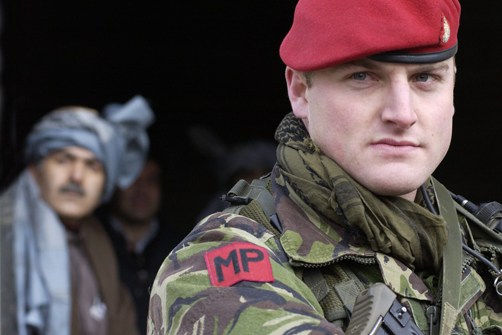The "small" European check to Afghanistan is starting to weigh heavily
(BRUSSELS2) Until recently, the Americans - and NATO - asked the Europeans to make a "small" effort in Afghanistan and Pakistan, considering that the Europeans were not taking on their burden of stabilizing the area. This is partly true in military matters (although one could relativize this difference). In civil matters, this is somewhat false. And the outstretched finger, not to say the cebill, by the Americans towards the Europeans is not justified. But effectively next to the military budget, it is "peanut" (it is estimated that the only additional effort that the US army will make with 30 additional men will be nearly $30.000 billion!). That may be part of the problem, the huge imbalance between civilian aid and military aid.
2nd big "external" budget of the EU
Afghanistan is, in fact, after Palestine, already the second largest budget for external relations of the European Union. Year after year, the community budget disburses almost 200 million euros - not counting the Eupol Afghanistan mission (police training) which reaches a budget of 64 million euros. An additional effort would mean cutting back on other external expenditure (therefore certainly Africa), as aid budgets are not expandable, at European or Member State level, especially in times of economic crisis and "rationalisation" budgetary.
8 billion euros spent since 2002
Between 2002 and 30 June 2009, the Community budget thus committed 1,65 billion euros to Afghanistan – including 282 million in humanitarian aid. And if we count the effort made by the Member States, in civil matters, we reach 8 billion (thus without counting the military effort). It is still not negligible. Especially since Afghanistan is a poor country.
| Year | Committed | disbursements |
| 2002 | 247.59 | 151.04 |
| 2003 | 285.55 | 213.90 |
| 2004 | 247.55 | 171.19 |
| 2005 | 224.48 | 206.11 |
| 2006 | 200.53 | 175.98 |
| 2007 | 195.90 | 224.59 |
| 2008 | 214.49 | 213.27 |
| Total | 1651.09 | 1398.23 |
For the year 2009
The annual program provides 75 million for the Lofta ("trust fund" for order and law) (*) and 22 million for the anti-mine program. This fund is important because it supports the effort carried out on law enforcement. It thus finances the salaries of police officers, as well as the staff of the central department of prisons, supplies, logistics and equipment for non-lethal operations, institutional development (with the establishment of an MSU management unit), as well as the promotion of women in the police. The results of the last year: 174 million were paid by the LOFTA to 81.000 police officers in the 34 provinces, a new unit was created aimed at dismantling illegal armed groups (DIAG), supported by Japanese funding (IT equipment, office, medical equipment for the police hospital…). In the solar year 1387 (the Afghan year), 628 police stations were financed, as well as the construction of a police gymnasium. 144 female police officers were recruited, bringing the total to 567. The objective of recruiting 300 women over two years, set in May 2007, has thus been achieved (326 were recruited).
An extra effort
At the Council of Foreign Ministers in October, the Europeans, through the voice of Commissioner Ferrero-Waldner (then in charge of external relations) explained that they were ready to make an additional effort. A way of responding to the demand from NATO and the Americans that the Europeans take their share of the burden. However, this additional effort has not yet been quantified. And it cannot take effect, at the earliest, until 2011. The current programming has already been launched and ends in 2010. It is then, halfway through next year, that the traditional work will begin a "mid-term review" which will make it possible to set the budgets for the following years: from 2011 to 2013...
(*) The Lofta is financed one third by the EU, another third by the United States (31%), Japan (16%), the Netherlands (7%), Canada (7%), Germany (3%) being the main other contributors. Finland, Switzerland, Australia, Italy, Norway, Belgium, Ireland, UNDP, Hungary, Denmark, Iceland, Latvia also contribute to this fund.

